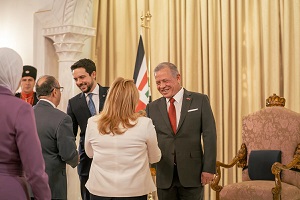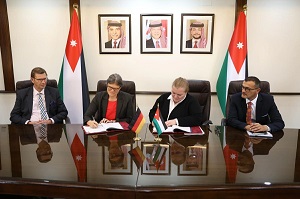The Gulf and the Desired Economic Growth - By Mohammed al-Rumaihi, Asharq Al-Awsat
About 45 years ago, or slightly more, several Gulf activists came together with the idea of creating a forum they called The Gulf Development Forum. Every year, this forum composed of volunteers convenes to address a developmental theme.
In the past two years, for instance, the forum met in Riyadh to discuss “Culture and Development in the Gulf,” and then in Muscat, where the focus was “Climate Change and Development in the Gulf.” The next session is scheduled to take place this coming February in Manama: “Digital Transformation: Artificial Intelligence and Development in the Gulf: Opportunities and Challenges.”
So far, this forum has published around 35 books on education, women, water resources, the future of the Gulf Cooperation Council, security threats in the Gulf, and other questions. Every volume compiles the discussions and research papers presented during these annual volunteer meetings, and they are available online free of charge.
Approaching the issue of development in the Gulf is not easy. It requires vision for the future and the changes in the engines of development. Yet it must be said that several Gulf states, notably Saudi Arabia and the United Arab Emirates, have clear economic plans for the future forward. These plans revolve around one guiding principle: diversifying sources of revenue, reflecting a vision for the economy of tomorrow.
Oil prices, which are shaped by politics, rise and fall with major geopolitical decisions around the world. Moreover, as a source of energy, oil may eventually be replaced by what are now known as alternative sources of energy, or new oil reserves might be discovered in other countries and regions, potentially reducing its strategic value.
Studies have highlighted the crucial role of innovation and technological innovation in generating economic growth. Some theorists speak of “creative destruction,” a notion inspired by the ideas of Austrian economist Joseph Schumpeter. It refers to the process by which new innovations replace old economic systems, shattering obsolete industries in favor of more efficient and productive alternatives.
Human development and the quality of education are at the heart of this cycle of destruction and creation. Both are essential for the success of the transition from old models and the development of enhancements. Growth is not achieved merely through quantitative expansion; it requires profound systemic change in public administration that fosters new forms of production and employment.
The clearest example available to us is Indonesia. Indonesia had until recently been an oil-producing country. However, it has become a net importer due to the depletion of its reserves after having once been a key member of OPEC. Oil once accounted for 70% of Indonesia’s GDP, creating a rentier economy, with the subsequent decline forcing the country to rethink its economic model, leading to what became known as “The Great Transformation” between the mid-1980s and mid-1990s.
During this period, Indonesia promoted light and medium industries, attracted foreign investment through reforms, developed its agricultural sector, expanded its services and tourism industries, and introduced reforms to its financial system and tax policy, as well as enhancing legal transparency.
Since the start of the century, Indonesia has ceased to rely on oil and instead focused on developing the technology sector in its major cities, supporting start-ups, particularly in artificial intelligence and e-commerce, and moving toward what is now known as a “green economy.”
This major shift, which was accompanied by improvements in the quality of education and a sharp rise in university enrollment rates, allowed for the emergence of an urban middle class and a decline in unemployment. Citizens became richer, and this middle class stimulated the domestic market, while corruption gradually receded as the anti-corruption commission gained strength.
Perhaps the key lesson the Gulf states can draw from this experience is the principle of “economies of scale.” Small countries naturally have limited markets, which makes the idea of a unified Gulf market a crucial step that must be made alongside a fundamental shift in the Gulf’s education model to focus on quality rather than quantity.
It must also be noted that there are ongoing and sincere efforts to develop education in the Gulf states. However, these efforts remain concentrated in certain countries and have yet to be fully integrated between them.
Similarly, food and water security can only be achieved through cooperation among the six member states of the Gulf Cooperation Council. One Gulf Development Forum study that addressed water resources has shown that 40 percent of available water is consumed by the agriculture sector, which only made a contribution to total GDP.
Progress cannot be taken for granted. Societies must constantly generate and sustain growth, monitoring crucial indicators, chief among them scientific innovation and openness to change. The successive waves of global technological innovation are reshaping the labor market. Today, for instance, technological advances have led to rising levels of unemployment in India. Economic and technological development, if not approached holistically, can have negative consequences for societies.
The volunteer-based Gulf Development Forum has made a valuable contribution to Arab policy, enriching it with a body of studies that help decision-makers ensure sustainable development.




